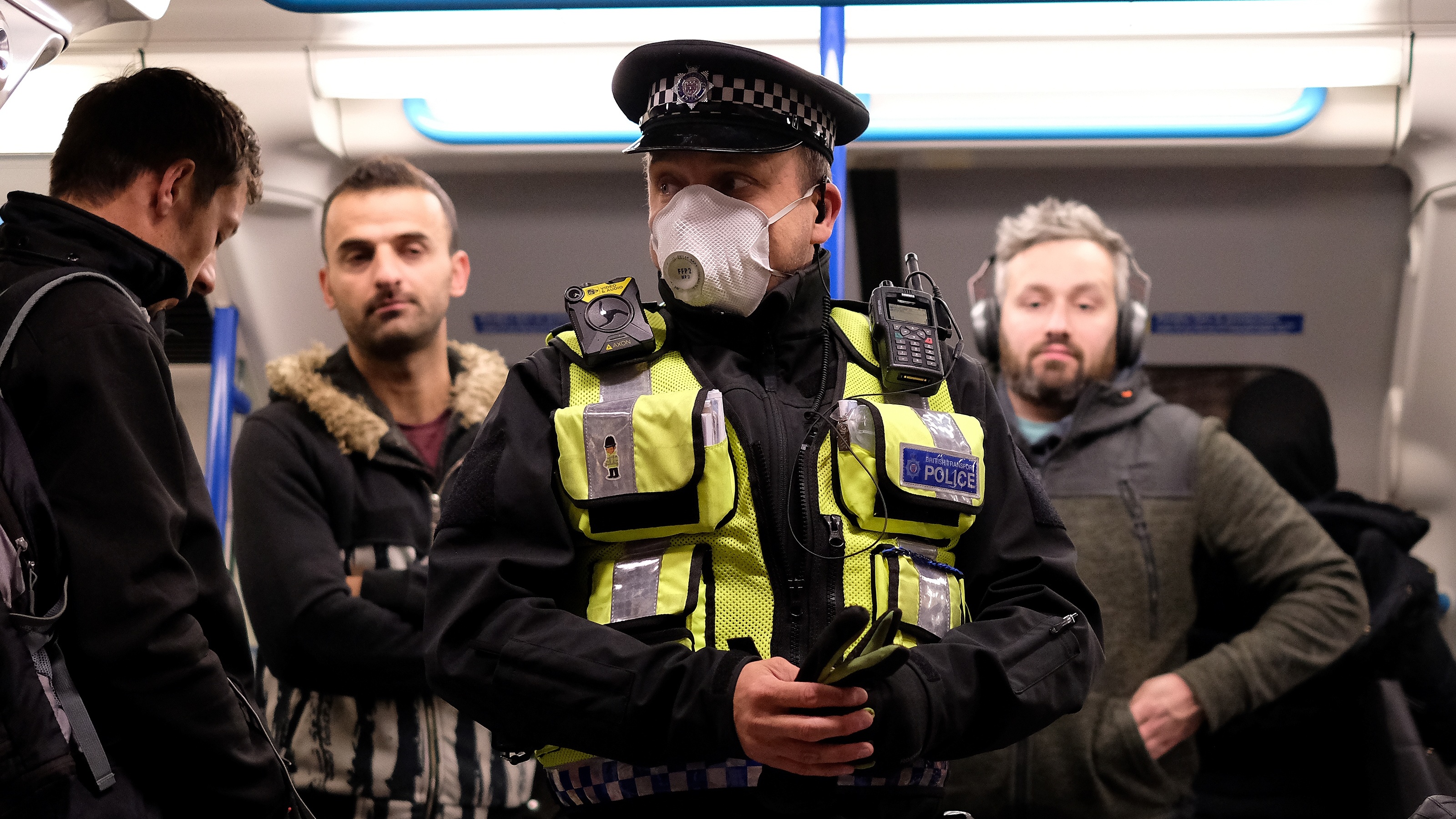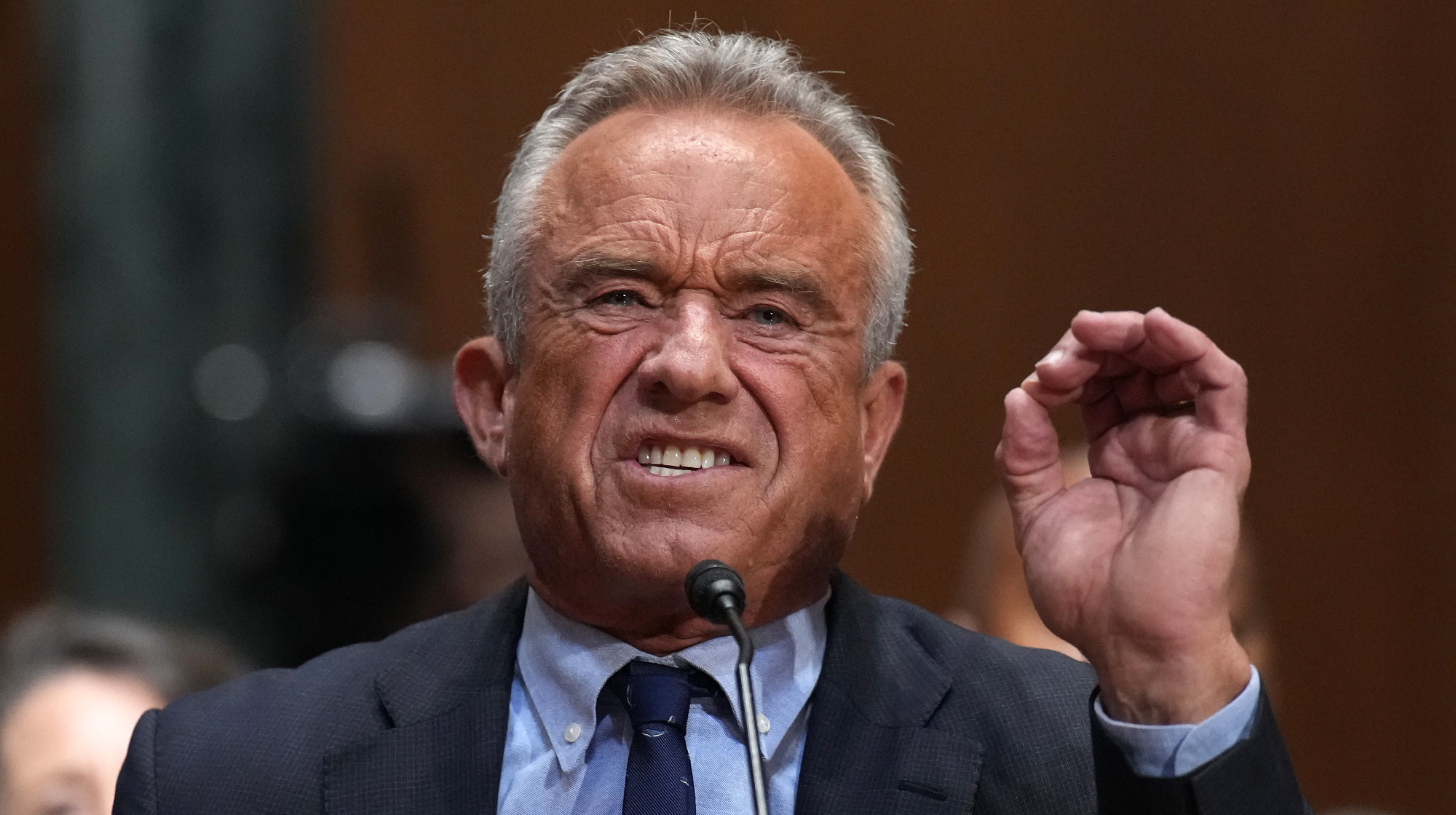‘Last chance saloon’: four potential outcomes for UK if Covid cases continue to spike
Boris Johnson has a number of options for reversing the rise - but all could be painful to stomach

A free daily email with the biggest news stories of the day – and the best features from TheWeek.com
You are now subscribed
Your newsletter sign-up was successful
The UK may be facing 49,000 new Covid cases every day by mid-October unless urgent action is taken to stem the spread, the country’s leading health experts have warned.
In a televised address this morning, the government’s Chief Scientific Adviser Patrick Vallance and England’s Chief Medical Officer Chris Whitty said that the R value, which tracks the spread of the disease, has risen to between 1.1 and 1.4, with the number of cases doubling each week. If the spread continues at the current rate, deaths could reach “200-plus” per day by mid-November, they added.
After implenting a ban on social gatherings of more than six people, Boris Johnson “has been persuaded by ministers led by Chancellor Rishi Sunak to hold fire on more economically damaging restrictions” to curb outbreaks, according to The Telegraph. However, a government source told the newspaper that cabinet ministers believe the UK is in the “last chance saloon” for fending off a second wave.
The Week
Escape your echo chamber. Get the facts behind the news, plus analysis from multiple perspectives.

Sign up for The Week's Free Newsletters
From our morning news briefing to a weekly Good News Newsletter, get the best of The Week delivered directly to your inbox.
From our morning news briefing to a weekly Good News Newsletter, get the best of The Week delivered directly to your inbox.
So what are the prime minister’s options?
Total lockdown
With the devastating economic effects of the first national lockdown still being felt, Johnson warned last week that imposing a second “would be completely wrong for this country”, adding that the government was “doing everything in our power to prevent it”.
Asked by the Commons Liaison Committee whether the UK could afford a second lockdown, Johnson said: “I very much doubt that the financial consequences would be anything but disastrous.”
A free daily email with the biggest news stories of the day – and the best features from TheWeek.com
Implementing such a measure would also be an embarrassing U-turn for Downing Street, with the PM previously describing the option as a “nuclear deterrent”. But Health Secretary Matt Hancock has been more equivocal, teling ITV News yesterday that a second national lockdown is only off the table “if everyone sticks by the rules”.
‘Circuit breaker’ lockdown
Another option reportedly being explored by ministers is a short, two-week lockdown being dubbed a “circuit breaker”. On Friday, Hancock said that such a measure could be imposed in October.
The proposal is being backed by some Conservative backbenchers. Geoffrey Clifton-Brown, Tory MP for the Cotswolds, told the BBC: “I think if we can nip it in the bud, that, unfortunately, is what we need to do.
“And some of these circuit breakers - short, sharp, shock cessation of some of our activities so that we can prioritise schools and people going back to work without having a huge spike in cases - must be the right thing to do.”
However, The Telegraph’s politics live editor Catherine Neilan reports that “one high-ranking Tory tells me he is concerned it will have serious economic consequences”, with the unnamed source saying that the move would “show a complete failure to learn”.
Night curfew
Curfews “have been credited with bringing infection rates down already in parts of the UK with high infection rates, such as Bolton and Newcastle, where pubs and restaurants have been told to shut at 10pm”, says The Times. London Mayor Sadiq Khan has pushed for similar restrictions for the capital.
The government has also been impressed by the impact of curfews in countries such as Belgium, and is reportedly “examining plans to go further, either by enforcing the 10pm rule nationally or even by moving to a full curfew under which people would be expected to be at home between certain hours at night”.
A senior government source told The Telegraph last week that “a national curfew is the obvious next step if the numbers keep rising despite all the steps we are currently taking”. Justice Secretary Robert Buckland also hinted at the plan, saying the measure could be needed because young people “getting together and enjoying themselves” were forgetting social distancing rules.
Ban on households mixing
Under this measure, people would not be allowed to meet anyone outside their own households in their homes or gardens, with exceptions only for those in the same support bubble. The Times notes that this approach is “already a key restriction in areas under local lockdown and could be rolled out nationally”.
In regions where this rule is already in place, anyone who breaks the ban can be fined £100, with the penalty doubling on each further repeat offence up to £3,200. “Covid-secure marshals” have also been deployed to enforce the regulations in cities and towns.
However, even in places covered by the ban, people can meet friends and family from other households in a restaurant or bar, as long as the group is no bigger than six.
“This has helped to protect the hospitality industry in areas under lockdown but it has created confusion,” the newspaper says. “Closing this loophole could decimate the hospitality industry and put pubs and restaurants at the front line of enforcing the new rules, which they will not be keen on.”
-
 Crisis in Cuba: a ‘golden opportunity’ for Washington?
Crisis in Cuba: a ‘golden opportunity’ for Washington?Talking Point The Trump administration is applying the pressure, and with Latin America swinging to the right, Havana is becoming more ‘politically isolated’
-
 5 thoroughly redacted cartoons about Pam Bondi protecting predators
5 thoroughly redacted cartoons about Pam Bondi protecting predatorsCartoons Artists take on the real victim, types of protection, and more
-
 Palestine Action and the trouble with defining terrorism
Palestine Action and the trouble with defining terrorismIn the Spotlight The issues with proscribing the group ‘became apparent as soon as the police began putting it into practice’
-
 NIH director Bhattacharya tapped as acting CDC head
NIH director Bhattacharya tapped as acting CDC headSpeed Read Jay Bhattacharya, a critic of the CDC’s Covid-19 response, will now lead the Centers for Disease Control and Prevention
-
 How corrupt is the UK?
How corrupt is the UK?The Explainer Decline in standards ‘risks becoming a defining feature of our political culture’ as Britain falls to lowest ever score on global index
-
 The high street: Britain’s next political battleground?
The high street: Britain’s next political battleground?In the Spotlight Mass closure of shops and influx of organised crime are fuelling voter anger, and offer an opening for Reform UK
-
 Is a Reform-Tory pact becoming more likely?
Is a Reform-Tory pact becoming more likely?Today’s Big Question Nigel Farage’s party is ahead in the polls but still falls well short of a Commons majority, while Conservatives are still losing MPs to Reform
-
 ‘We owe it to our young people not to lie to them anymore’
‘We owe it to our young people not to lie to them anymore’instant opinion Opinion, comment and editorials of the day
-
 Taking the low road: why the SNP is still standing strong
Taking the low road: why the SNP is still standing strongTalking Point Party is on track for a fifth consecutive victory in May’s Holyrood election, despite controversies and plummeting support
-
 ‘This isn’t just semantics’
‘This isn’t just semantics’Instant Opinion Opinion, comment and editorials of the day
-
 RFK Jr. faces bipartisan heat in Senate hearing
RFK Jr. faces bipartisan heat in Senate hearingSpeed Read The health secretary defended his leadership amid CDC turmoil and deflected questions about the restricted availability of vaccines